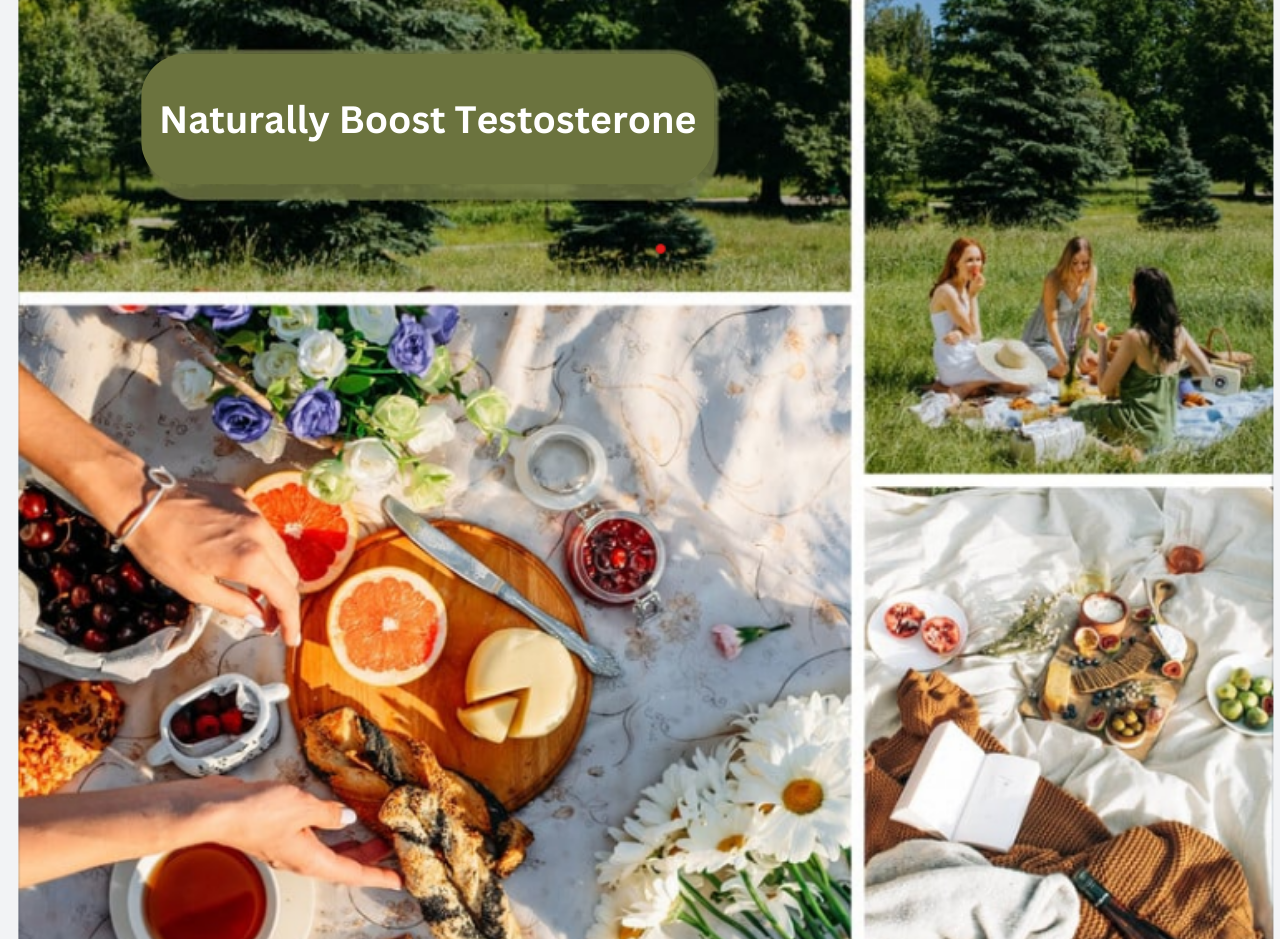Naturally Boost Testosterone: Testosterone is a vital hormone that plays a significant role in the overall health and well-being of both men and women. While commonly associated with male sexual development and characteristics, testosterone is also essential for bone health, muscle mass, sexual function, fertility, energy levels, and cognition in people of all sexes. When testosterone levels dip below normal, it can lead to various symptoms, including fatigue, low libido, weight gain, depression, and more. Fortunately, there are multiple ways to boost testosterone levels, both with and without medication.
Understanding Low Testosterone
Low testosterone, or hypogonadism, can occur due to various factors, including aging, lifestyle choices, and underlying health conditions. Before considering treatment options, it’s crucial to undergo a hormone panel to measure testosterone levels accurately. Working with a healthcare provider is essential to identify the most appropriate course of action for boosting testosterone levels, which may include lifestyle changes, dietary supplements, or testosterone replacement therapy (TRT).
Nondrug Approaches to Increase Testosterone
For individuals with moderately impaired testosterone levels, healthcare providers often recommend nondrug approaches that naturally and safely boost testosterone. Here are some effective methods:
1. Weight Loss
Naturally Boost Testosterone: Excess body fat is one of the leading causes of low testosterone levels. The enzyme aromatase, which converts testosterone into estrogen, is produced in greater quantities as body fat increases. This conversion can lead to a significant drop in testosterone levels. Weight loss is a proven remedy, with studies showing that for every one-point drop in body mass index (BMI), testosterone levels can rise by as much as one point. Although BMI is a dated and flawed measure, it remains widely used in the medical community to assess potential health risks.
2. Exercise
Naturally Boost Testosterone: Regular physical activity, particularly a combination of aerobic exercise and resistance (weight) training, has been shown to increase testosterone production. The intensity of the exercise plays a crucial role, with high-intensity workouts boosting testosterone levels more effectively than low-intensity ones. Additionally, exercising larger muscle groups, such as the quadriceps, is more effective in raising testosterone levels compared to smaller muscle groups. Working with a personal trainer can help individuals achieve these fitness goals.
3. Dietary changes
Naturally Boost Testosterone: While there isn’t a specific “testosterone diet,” maintaining a healthy, balanced diet is key to supporting optimal testosterone levels. Nutrients such as protein, vitamin D, magnesium, and zinc are essential. Some foods that may support testosterone health include multicolored fruits and vegetables, nuts (particularly Brazil nuts), seeds (particularly flaxseeds), and soy products like soy milk and tofu. Conversely, it’s advisable to limit the intake of red meat, refined sugar, processed foods, and excessive dairy, as these can increase body fat and aromatase production.
4. Stress Management
Naturally Boost Testosterone: Chronic stress can negatively impact testosterone levels by triggering the release of cortisol, a stress hormone. Persistently high cortisol levels can block the production of luteinizing hormone (LH), which is responsible for stimulating testosterone production. To manage stress and reduce cortisol levels, individuals can:
- Get plenty of sleep. Sleep deprivation is linked to chronic cortisol elevations. Improving sleep hygiene can ensure regular, full nights of rest.
- Avoid caffeine: Caffeine can independently stimulate cortisol production, leading to a modest decrease in testosterone levels.
- Practice mind-body therapies: Techniques such as meditation, yoga, guided imagery, deep breathing exercises, and progressive muscle relaxation (PMR) have proven effective in lowering cortisol levels.
Supplements and testosterone boosters
Naturally Boost Testosterone: Despite their popularity, the evidence supporting the use of dietary or herbal supplements to boost testosterone levels is generally weak. Many testosterone boosters contain excessive amounts of minerals and vitamins, which can lead to serious side effects, particularly if taken in doses higher than recommended. While some supplements show promise, like Bulbine natalensis, Epicatechin, Eurycoma longifolia, and Fenugreek, others like Ashwagandha, ginseng, maca root, vitamin D, and zinc have shown mixed or no results in clinical studies.
Testosterone Replacement Therapy (TRT)
Naturally Boost Testosterone: For those diagnosed with clinical hypogonadism, testosterone replacement therapy (TRT) is the primary treatment option. TRT can be administered in various forms, including pills, gels, patches, oral paste, nasal gel, injections, and pellets. The method of administration depends on individual needs, and the therapy is closely monitored by healthcare providers to minimize potential side effects and complications.
Forms of TRT in Males:
- Testosterone pills like Jatenzo (testosterone undecanoate) are taken twice daily with food.
- Testosterone gel (AndroGel, Testim) is applied daily to the skin.
- Testosterone patches (Androderm) are applied to the skin daily and do not need to be removed during sex or bathing.
- Testosterone oral paste (Striant) is applied three times daily to the buccal cavity.
- Testosterone nasal gel (Natesto) is applied three times daily.
- Testosterone injections (Depo-testosterone, Delatestryl) are administered into a muscle or under the skin.
- Testosterone pellets (Testopel) are inserted subcutaneously and maintain T levels for up to four months.
Considerations Before TRT
Naturally Boost Testosterone: While TRT can be effective, it is not without risks and should only be used in diagnosed cases of hypogonadism. Potential side effects in males include acne, oily skin, sleep apnea, breast enlargement, testicular shrinkage, aggression, reduced sperm production, and an enlarged prostate. In females, TRT may cause acne, an enlarged clitoris, breast shrinkage, increased muscle mass, irregular periods, and changes in skin texture.
Summary of Naturally Boost Testosterone
Naturally Boost Testosterone: Low testosterone levels can have a significant impact on overall health and well-being, but there are ways to boost them naturally and safely. Lifestyle changes such as weight loss, improved nutrition, regular exercise, and stress management are effective nondrug approaches. For those with clinically low testosterone, TRT may be prescribed, but it should be closely monitored due to potential risks. Before making any decisions, it’s essential to consult with a healthcare provider and undergo thorough testing to determine the best course of action.


